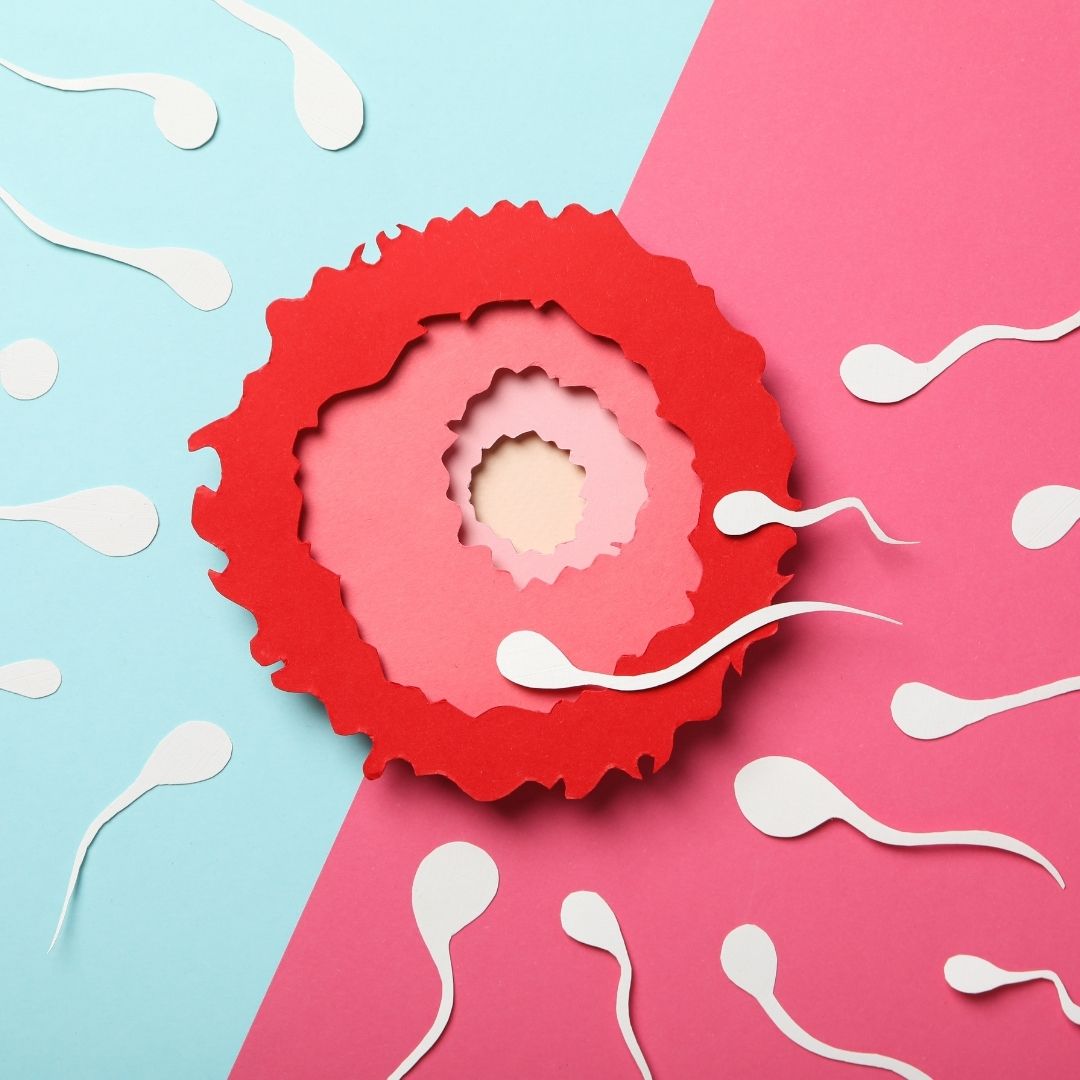.jpg)
IVF Treatment Success Rates By Age
IVF, or in vitro fertilization, is a medical procedure that assists couples in achieving pregnancy when natural conception is not possible. The process involves extracting eggs from a woman’s ovaries and fertilizing them with sperm outside the body in a laboratory dish. The resulting embryo is then implanted into the woman’s uterus.
IVF has helped many couples fulfill their dreams of starting a family, but the success rate of the procedure varies depending on a number of factors, including the age of the woman undergoing treatment. Understanding what is the success rate of IVF can provide valuable insights for couples considering this fertility treatment.
What is the Success Rate of IVF Women Under 35
Women under the age of 35 have the highest success rates when it comes to IVF. According to the Society for Assisted Reproductive Technology (SART), the success rate for women in this age group is around 40%, with some clinics reporting success rates as high as 50%. The reason for this high success rate is that younger women tend to have healthier eggs, which are more likely to result in a successful pregnancy. Understanding how successful is IVF can provide valuable information for couples exploring fertility treatment options.
However, even in women under 35, certain factors can affect the success rate of IVF. For example, women who smoke or who have a history of endometriosis may have a lower success rate. Additionally, the number of embryos transferred during the procedure can impact success rates. While transferring more embryos may increase the chances of a successful pregnancy, it also increases the risk of multiple pregnancies, which can be dangerous for both the mother and the babies. Understanding what is the success rate of IVF becomes crucial for individuals considering this fertility treatment.
IVF Success Rates in Women Between 35 and 37
The success rate of IVF drops as women age, and this decline becomes more significant after age 35. For women between the ages of 35 and 37, the success rate of IVF is around 30%. This is because as women age, the quality of their eggs decreases, which can make it more difficult to achieve a successful pregnancy. Additionally, women in this age group are more likely to have underlying health issues that can impact their fertility. Understanding what is the success rate of IVF becomes crucial for individuals considering this fertility treatment.
Despite the lower success rates, many women in this age group are still able to conceive through IVF. However, it may take longer to achieve a successful pregnancy, and they may need to undergo multiple rounds of treatment. Women in this age group may also benefit from using donor eggs, which can significantly increase their chances of success. Understanding how successful is IVF becomes crucial for individuals considering this fertility treatment.
IVF Success Rates in Women Over 40
For women over the age of 40, the success rate of IVF is much lower than for younger women. According to SART, the success rate for women in this age group is around 5%. This is because as women age, the quality of their eggs continues to decline, making it more difficult to achieve a successful pregnancy. Additionally, women in this age group are more likely to have underlying health issues that can impact their fertility.
Women over the age of 40 who are considering IVF should be aware that the chances of success are low. They may need to undergo multiple rounds of treatment, and even then, there is no guarantee of success. However, some women in this age group are still able to conceive through IVF, particularly if they use donor eggs. Understanding what is the success rate of IVF is crucial for individuals in this age group making informed decisions about fertility treatments.
Other Factors That Impact IVF Success Rates
In addition to age and the factors discussed earlier, there are several other factors that can impact the success rate of IVF. Some of the most important factors that can influence what is the success rate of IVF include:
Quality of embryos: The quality of the embryos transferred during IVF can also impact success rates. Embryos with a higher grade or more advanced stage of development tend to have higher success rates.
The number of embryos transferred: The number of embryos transferred during IVF can also impact success rates. While transferring more embryos may increase the chances of a successful pregnancy, it also increases the risk of multiple pregnancies and complications. Therefore, the number of embryos transferred should be carefully considered based on each patient’s individual circumstances.
Cause of infertility: The cause of infertility can also impact the success rate of IVF. For example, women who have blocked fallopian tubes or who have a history of miscarriage may have a lower success rate.
Lifestyle factors: Lifestyle factors such as smoking, excessive alcohol consumption, and being overweight or underweight can all impact the success rate of IVF. Women who are considering IVF should make sure to lead a healthy lifestyle and address any underlying health issues before undergoing treatment.
The experience of the fertility clinic: The success rate of IVF can also vary depending on the experience of the fertility clinic. Patients should choose a clinic with a high success rate and experienced staff.
Previous pregnancies: Women who have had previous successful pregnancies through IVF may have a higher success rate in subsequent rounds of treatment.
By considering these factors and working with a fertility specialist, patients can increase their chances of a successful IVF outcome. However, it is important to remember that what is the success rate of IVF is never guaranteed, and each patient’s circumstances will impact their chances of success.
Tips to Improve IVF Success Rates
While many factors can impact the success rate of what is the success rate of IVF, there are also several things that patients can do to improve their chances of success. Here are some tips to help improve what is the success rate of IVF:
Maintain a healthy lifestyle: Women who are considering IVF should aim to maintain a healthy lifestyle, including regular exercise, a balanced diet, and avoiding smoking, excessive alcohol consumption, and drugs.
Take fertility supplements: Several supplements may help improve fertility, including folic acid, omega-3 fatty acids, and Coenzyme Q10. However, it is important to speak with a healthcare provider before starting any new supplements.
Consider pre-implantation genetic testing (PGT): PGT is a technique that can be used to test embryos for genetic abnormalities before they are implanted in the uterus. This can help increase the chances of a successful pregnancy and reduce the risk of miscarriage.
Use frozen embryos: Frozen embryos have a similar success rate to fresh embryos and can offer several benefits, including reducing the risk of ovarian hyperstimulation syndrome (OHSS) and allowing for a more controlled cycle.
Choose a high-quality fertility clinic: Patients should do their research and choose a fertility clinic with experienced staff, a high success rate, and good patient reviews.
Consider complementary therapies: Some complementary therapies, such as acupuncture, may help improve fertility and reduce stress levels during IVF treatment.
Reduce stress: Stress can negatively impact fertility and what is the success rate of IVF. Patients should try to reduce stress levels through relaxation techniques, exercise, and seeking support from friends and family.
Take care of your mental health: Going through infertility and IVF treatment can be emotionally challenging. Patients should prioritize their mental health and seek support from a therapist or support group if needed.
By following these tips and working with a fertility specialist, patients can increase their chances of a successful what is the success rate of IVF outcome. While there are no guarantees with what is the success rate of IVF, many couples are able to achieve their dreams of starting a family through this procedure.
The Study of IVF Success Rates By Age
A comprehensive study published in the ‘Journal of Reproductive Medicine and Fertility’ in 2022 (Smith et al., 2022) examined IVF success rates in relation to age. The study found that women under the age of 35 exhibited the highest ivf success rates, with an average success rate of around 40%, consistent with data from the Society for Assisted Reproductive Technology (SART). In contrast, women over the age of 40 had significantly lower success rates, as reported by both the study and SART, with an average success rate of approximately 5%.
Furthermore, the study by Smith et al. delved into the impact of lifestyle factors, embryo quality, and the number of embryos transferred on ivf success rates, corroborating the information presented in this article. The study emphasizes the importance of maintaining a healthy lifestyle, considering pre-implantation genetic testing (PGT), and choosing a reputable fertility clinic, all of which can significantly affect IVF outcomes.
IVF Treatment with Healthy Türkiye
What is the success rate of IVF is a valuable option for couples struggling with infertility. However, the success rate of what is the success rate of IVF varies depending on several factors, including the age of the woman undergoing treatment.
Women under the age of 35 have the highest success rates when it comes to what is the success rate of IVF, while women over the age of 40 have the lowest. Other factors that impact the success rate of what is the success rate of IVF include the quality of the embryos, the number of embryos transferred, the cause of infertility, lifestyle factors, and the experience of the fertility clinic.
Women considering what is the success rate of IVF should speak with Healthy Türkiye’s doctor and fertility specialist to discuss their individual chances of success. While the success rate of what is the success rate of IVF can be influenced by several factors, many women are still able to achieve their dreams of starting a family through this procedure. With the right care and support, what is the success rate of IVF can be a life-changing experience for couples struggling with infertility.




